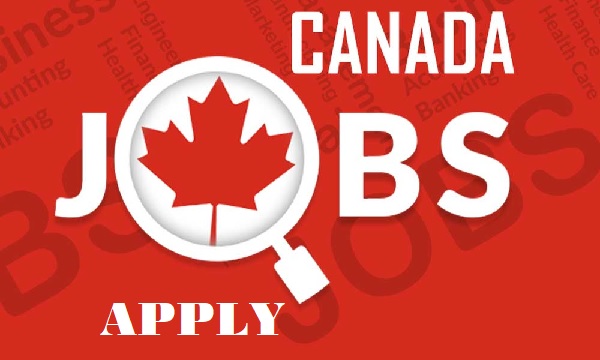Finding unskilled jobs in the US can be a challenging but rewarding journey for immigrants. The demand for unskilled labor in various industries, such as hospitality, agriculture, and construction, creates numerous opportunities. This guide will provide you with a clear step-by-step process to secure a job with sponsorship, making your transition smoother and more successful.
You will learn about different visa options available, such as the H-2B and EB3 visas, which can help facilitate your employment in the US. Knowing how to navigate the application process is crucial. Many employers value the hard work and dedication that immigrants bring to their teams.
By following the steps outlined in this guide, you can increase your chances of finding a job that not only meets your needs but also supports your ambitions in America. Understanding the labor certification process and connecting with recruitment agencies will be key parts of your journey.
Understanding US Immigration Policies for Work
Navigating US immigration policies can be complex, especially for immigrants seeking unskilled jobs. Familiarizing yourself with the types of visas available and the eligibility criteria is essential for successfully securing employment with sponsorship.
Visa Types and Requirements
There are several visa options for unskilled workers, each with specific requirements. The most common visas include:
- H-2B Visa: For seasonal non-agricultural work. You need a job offer and your employer must prove that there aren’t enough US workers to fill the position.
- EB-3 Visa: This permanent residency visa is for skilled, unskilled, and professional workers. It requires a job offer and labor certification from the employer.
- J-1 Visa: For work-and-study-based exchange programs. It includes various categories, but you usually need a sponsor.
Each visa type has distinct application processes and eligibility requirements that you must understand to ensure compliance.
Eligibility Criteria for Immigrants
To be eligible for work visas, you must meet specific criteria, including:
- Job Offer: A valid job offer from a US employer is necessary for most work visas.
- Labor Certification: Your employer may need to obtain this certification to prove that hiring a foreign worker will not affect US workers negatively.
- Background Check: You must pass health and criminal background checks to qualify.
Understanding these criteria helps you prepare better and increases your chances of a successful application.
Identifying Unskilled Job Opportunities
Finding unskilled job opportunities in the U.S. requires understanding where the demand lies and knowing how to search for positions that offer sponsorship. Various sectors need workers, and using the right resources can help you identify openings effectively.
Sectors with High Demand
Certain sectors consistently seek unskilled labor. Here are key industries to consider:
- Hospitality: Restaurants and hotels often need staff for kitchen help, cleaning, and guest services.
- Construction: There is always a need for laborers on construction sites, from general labor to specific tasks requiring basic skills.
- Agriculture: Seasonal work in farms and orchards is abundant, particularly during harvest times.
- Retail: Stores seek cashiers and stock clerks, especially during peak shopping seasons.
These sectors frequently use visa sponsorship to fill gaps, making them ideal for immigrants seeking employment.
How to Find Sponsored Job Listings
To effectively locate unskilled job listings with sponsorship, consider the following methods:
- Online Job Portals: Websites like Indeed and Glassdoor allow you to filter searches for jobs offering visa sponsorship.
- Recruitment Agencies: Many agencies specialize in helping immigrants find jobs. They can connect you with employers looking to sponsor workers.
- Networking: Use social media and professional networks to connect with employers and other immigrants who can share job leads.
By using these strategies, you increase your chances of finding suitable unskilled job opportunities that offer the necessary sponsorship.
Application Process for Unskilled Jobs
The application process for unskilled jobs involves several key steps. You must prepare your resume and cover letter effectively and understand how to navigate the job interview. Focus on these elements to improve your chances of getting hired.
Preparing Your Resume and Cover Letter
Your resume should clearly state your skills and experiences, even if they are limited. Start with your name and contact information at the top. Highlight any relevant work history, even if it’s part-time or informal. Use bullet points to list your duties in past jobs, emphasizing what you achieved.
In your cover letter, explain why you want the job and how your background makes you a good fit. Be concise, ideally keeping it to one page. Always customize both documents for each job application. This shows employers you are serious and interested. Finally, proofread for errors to ensure a professional presentation.
Navigating the Job Interview
Arriving prepared for the job interview can make a big difference. Research the company and practice answering common questions. Examples include why you want the job and what skills you bring. Practice speaking clearly and confidently about your experience.
Dress appropriately for the interview, maintaining a neat appearance to make a positive first impression. During the interview, listen carefully to questions and take a moment to think before you answer. If uncertain, it’s okay to ask for clarification. Showing enthusiasm and a willingness to learn can help you stand out.
After Getting Hired
Once you secure a job, there are important steps to take for relocation and understanding your rights. These actions will help you adjust smoothly to your new role and environment.
Relocation and Settlement
When relocating for a job in the U.S., consider the logistics of moving. Start by organizing your travel plans and finding temporary accommodation if needed. Research housing options in the area before you arrive. Websites like Zillow and Craigslist can provide listings.
It’s also essential to learn about your new community. Check local resources to understand public transport, healthcare facilities, and schools if you have children. Connecting with local immigrant groups can be beneficial for support and networking.
Don’t forget to open a local bank account. This simplifies managing your finances and receiving paychecks. Additionally, familiarize yourself with the cost of living in your new area, as this will impact your budgeting.
Understanding Your Rights as an Employee
Knowing your rights as an employee is crucial. First, be aware of the Fair Labor Standards Act, which sets minimum wage and overtime pay requirements. You should receive at least the minimum wage for your work.
You also have the right to a safe workplace. Employers are responsible for providing a healthy work environment. If you face unsafe conditions, report them to a supervisor or relevant authority.
Moreover, understanding your rights related to discrimination and harassment is vital. You should never face unfair treatment based on your background. If you feel threatened or discriminated against, it’s important to speak up or seek legal advice.
Remember, you have the right to join a union if you choose to. This can provide additional support and advocacy in the workplace. Knowing these rights empowers you to navigate your new job effectively.


